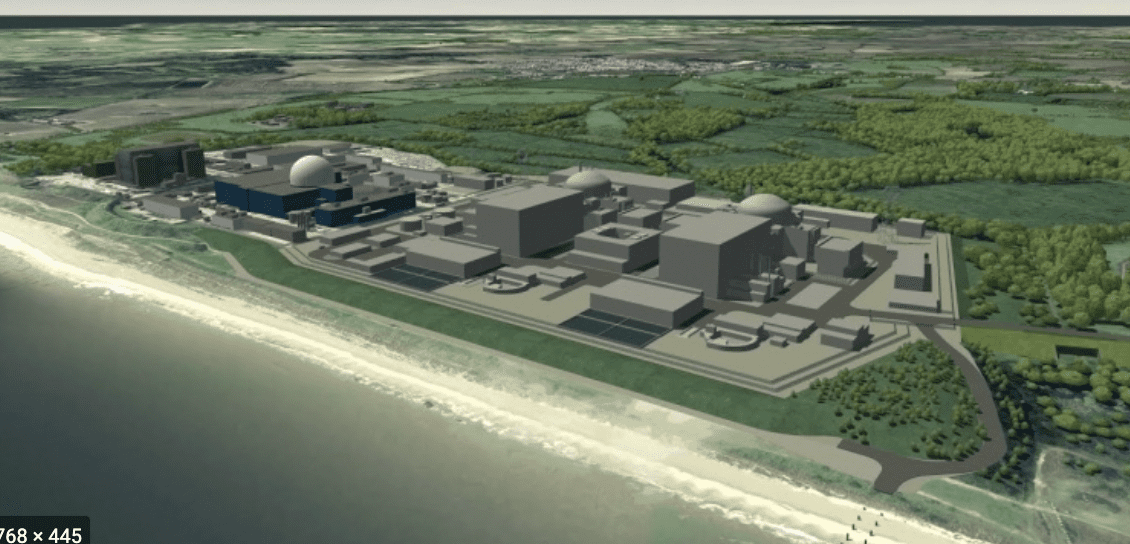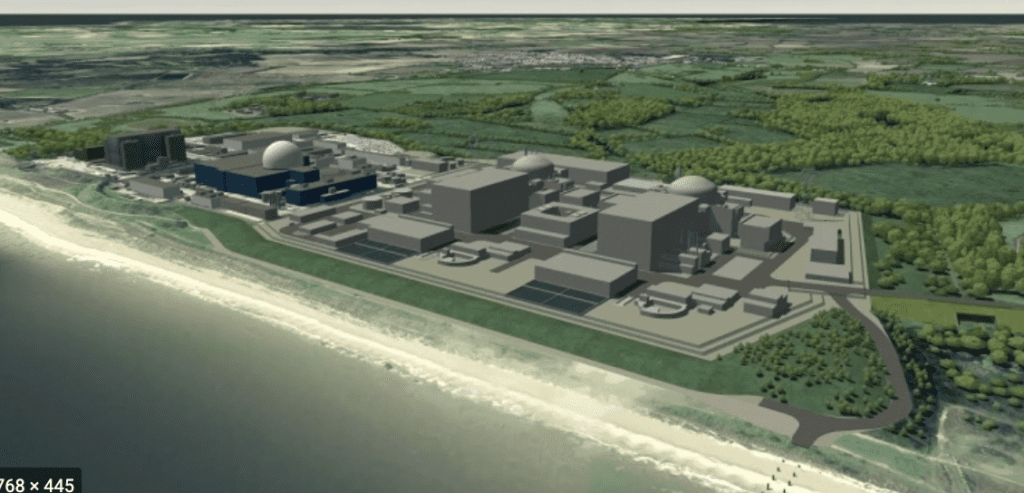
The UK government has given the go-ahead for construction of the Sizewell C nuclear power plant in southeast England, which officials have called an important project for the country to meet its net-zero climate goals.
Business Secretary Kwasi Kwarteng on July 20 confirmed the government’s support, saying UK officials consider it a major infrastructure project for the country.
Sizewell C, which would be majority-owned by France utility EDF, would be built in Suffolk, a fishing village about 110 miles northeast of London that has been home to nuclear power at the Sizewell site for nearly 60 years. The plant is expected to have 3.2 GW of generation capacity, according to officials who on July 20 announced their support for the project. The plant is expected to feature two, 1,600-MW pressurized water (EPR) reactors.
Sizewell C is sited next to the existing Sizewell B nuclear plant, a 1,250-MW facility that has operated since 1995. Sizewell A, which came online in 1966, was closed at the end of 2006. Sizewell A for most of its operating life was a two-unit, 490-MW capacity plant.

EDF, among the world’s largest electricity producers, said discussions are ongoing with the British government over funding for Sizewell C, which reportedly has an estimated price tag of about £20bn ($ 24 billion). EDF said it expects to make a final investment decision about the project next year. British officials have said the UK will give £100m ($ 120 million) to the project, and might also take an ownership stake in the nuclear plant.
“Sizewell C will be one of the UK’s largest-ever green energy projects, and this decision significantly strengthens the pipeline of new nuclear capacity in Britain,” said Tom Greatrex, chief executive of the Nuclear Industry Association, in a statement.
There has been local and national opposition to the project; a group called Stop Sizewell C in a statement said it “will be looking closely at appealing this decision.” Alison Downes, a member of the group, told the BBC news channel, “We are going to continue challenging this project because of technical concerns, impacts on the environment, the investors, the fact that households are going to have to pay, the huge expense and potential for massive delays.”
Reports earlier this year said research by the University of Greenwich Business School, which looked at potential costs of building the new nuclear plant, showed the price tag could balloon to as high as £43.8bn ($ 52.4 billion). EDF has said it expects Sizewell C will take 10 to 12 years to build. Government officials have said Sizewell could be eligible for financing under the UK’s regulated asset base, or RAB, model, which enables companies building new facilities to be paid during the construction phase—meaning energy customers would pay for the project when construction begins, with ratepayers sharing risks of delays or cost overruns. Stop Sizewell C and other groups have called that an “energy tax.”
Critics of building the new plant also point to EDF’s problems with construction of Hinkley Point C, another 3.2-GW nuclear power plant with two EPRs that is under construction in western England. That project has struggled with cost overruns and numerous construction delays.
The application to build Sizewell C was first submitted to government officials in May 2020, but the decision on construction was delayed due to the pandemic. Carly Vince, Sizewell C’s chief planning officer, in a statement said, “I am delighted that, after months of careful consideration, the Government has given planning consent for Sizewell C. Sizewell C will be good for the region, creating thousands of opportunities for local people and businesses. It will boost local biodiversity and leave a legacy Suffolk can be proud of.”
—Darrell Proctor is a senior associate editor for POWER (@POWERmagazine).
The post UK Throws Support Behind Sizewell C Nuclear Plant Construction appeared first on POWER Magazine.